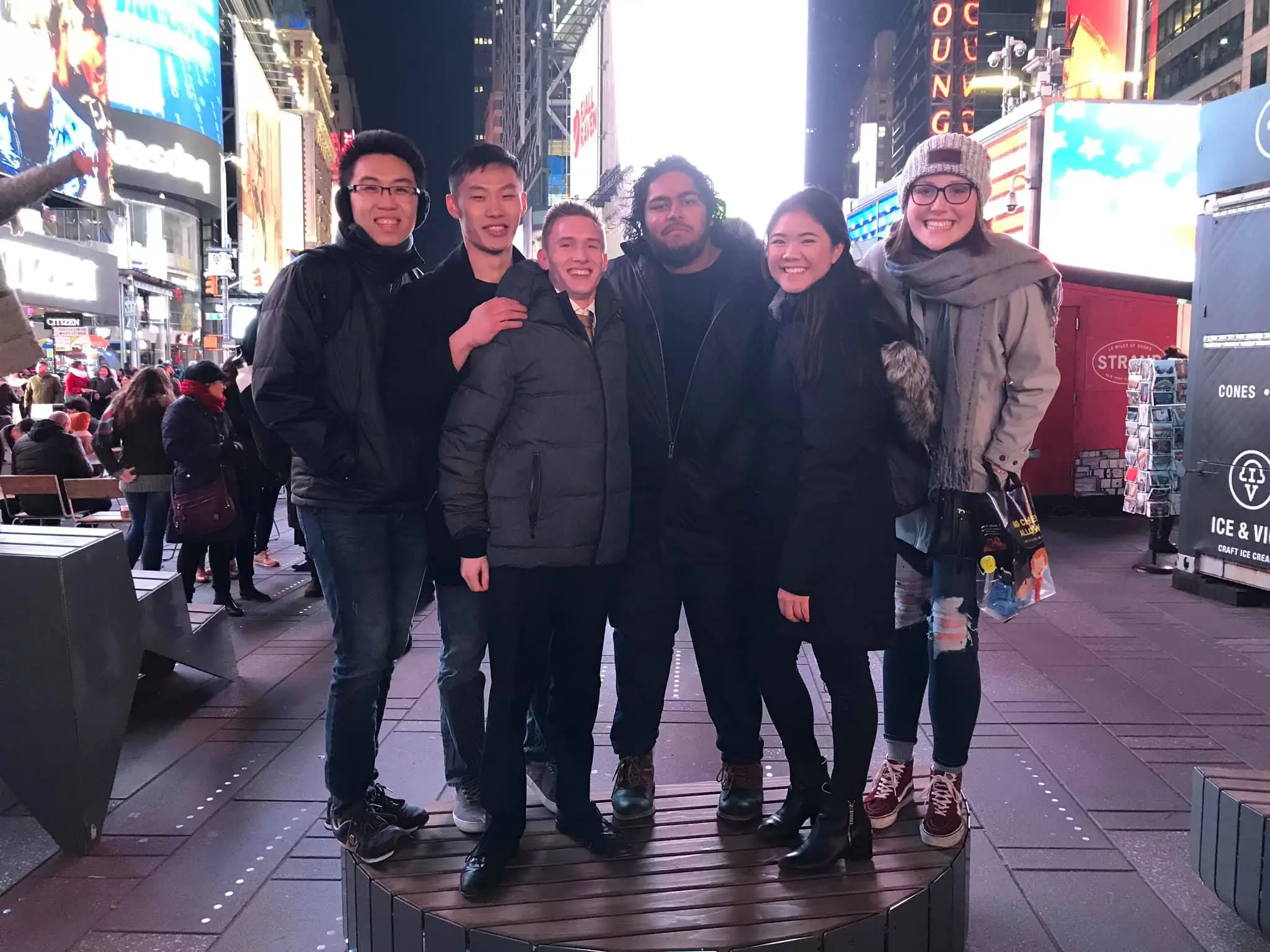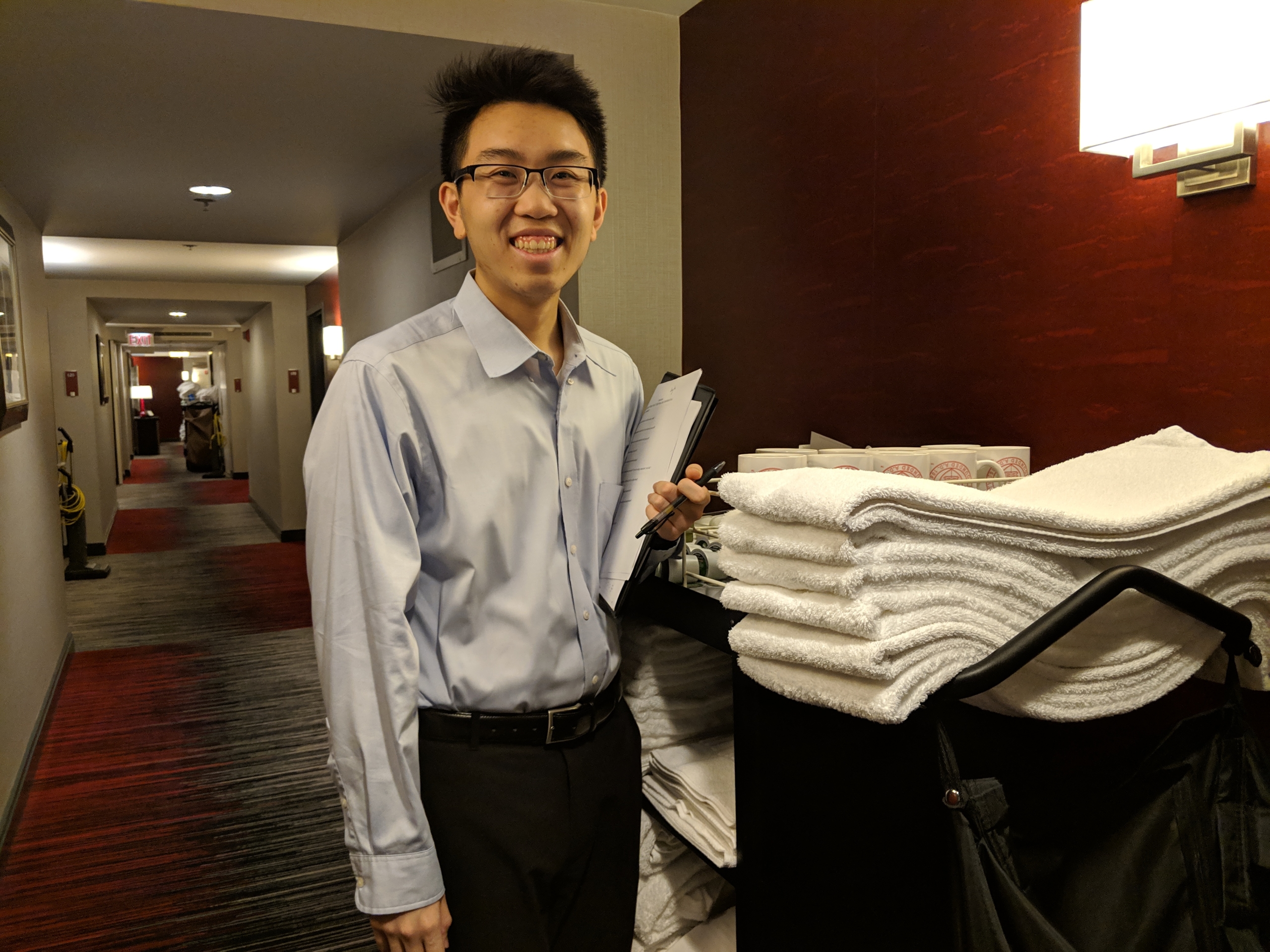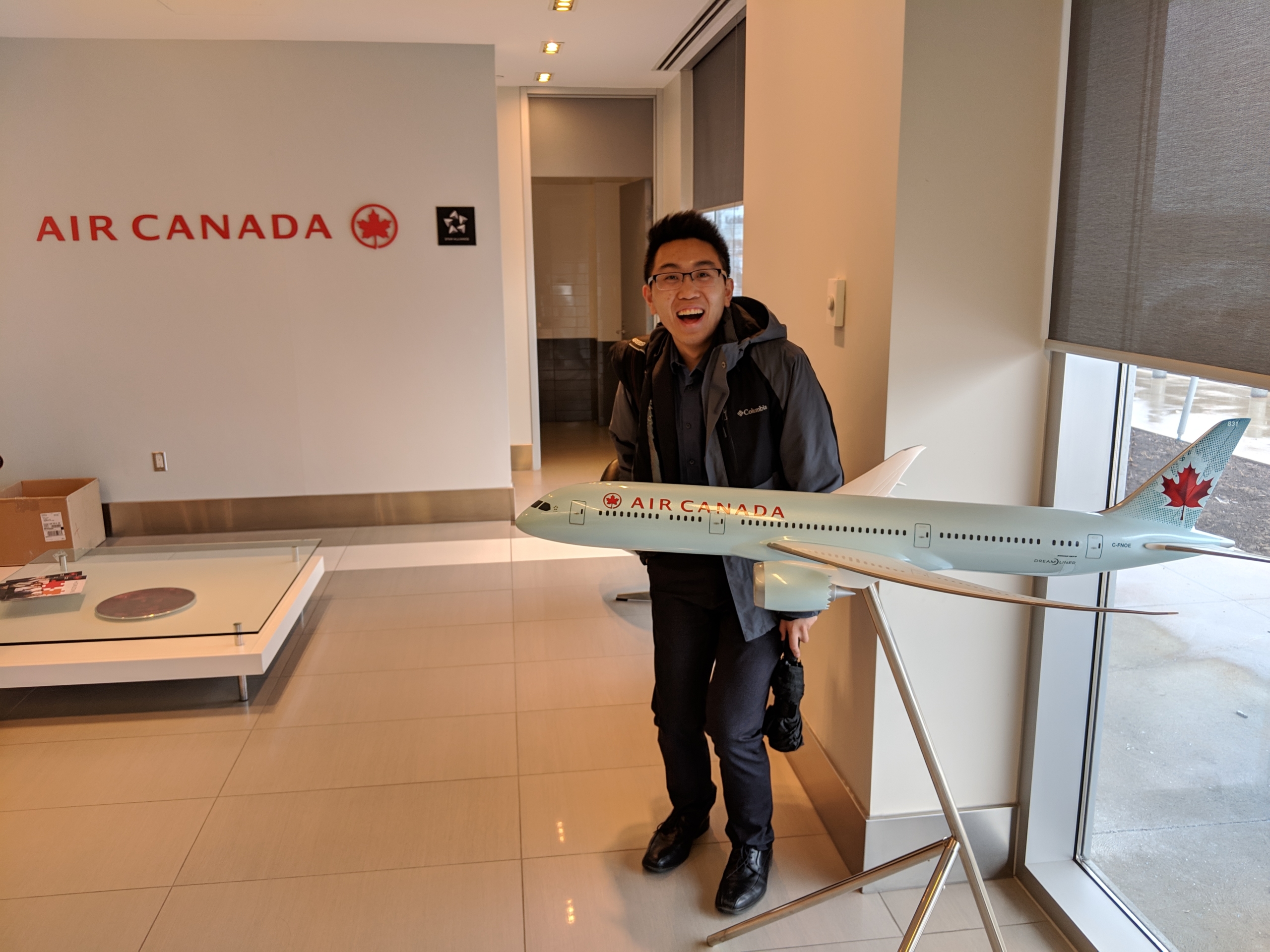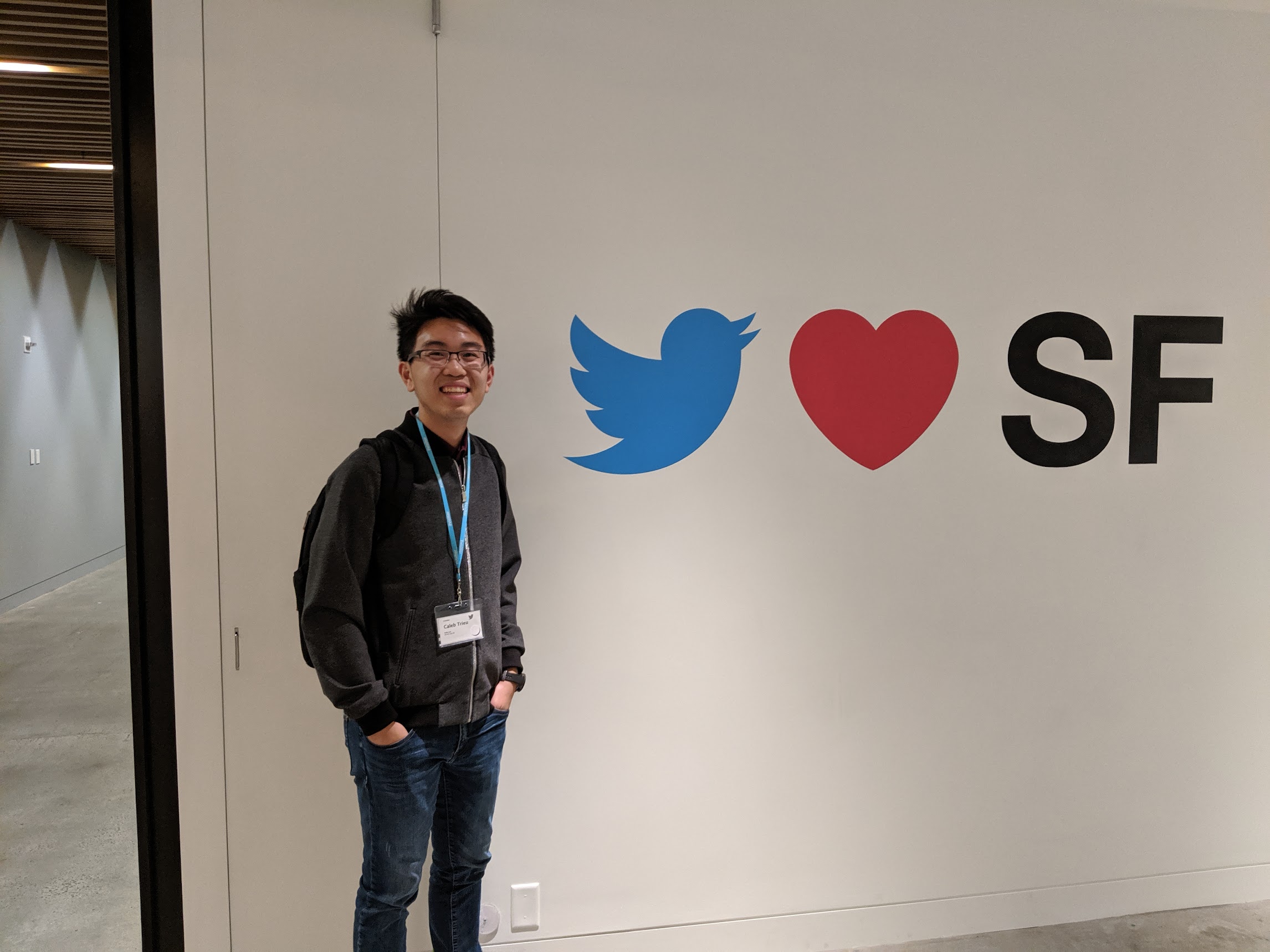
Caleb (Far Left) visiting New York, with Hotelies to learn about various career paths and industries.
As a college student (or graduate), one of the first questions you’re asked are these:
“What school do you go to?”
“What are you studying?”
These are valid questions. What we study signals what we are passionate about, what we plan to do for a career, and what our skill set is. While what you choose to study in college is important, I’ve learned that it is not the defining factor, especially when it comes to future career and job prospects.
In “Caleb terms,” a hiring manager is not going to look at your college major on your resume and immediately toss it away (a sigh of relief). For those of us with an uncommon major, I want to share three pieces of college career learnings that I have discovered as a result of my experience at Cornell’s Nolan School of Hotel Administration.

Caleb working with Statler Hotel housekeeping as part of his hotel operations practicum
DON’T LOOK AT YOUR COLLEGE MAJOR FROM THE FACE VALUE
Because I studied in the hotel administration program, I mistakenly siloed myself into niches when I didn’t have to do that. In reality, I had the autonomy to choose how I shape my major and story. For example, I initially didn’t pursue technology classes or apply to strategy roles in tech companies because I didn’t think I would be prepared or have the skill set needed to do well. However, it wasn’t until several semesters later that I realized that I let the word “hotel” dictate what I could or could not do with my “Hotel Administration” major.
Specifically, I learned when speaking to Hotel Administration alumni and professors that my degree enabled me to do much more than managing hotels or restaurants. I could pursue something different because the Nolan School requires its students to take classes in areas such as human resources, real estate, and data analysis. I could explore areas that would not be considered traditional hospitality. The Nolan School doesn’t teach the hospitality business. It teaches the hospitality of business: hospitality is the school’s foundation. Real estate, data, and innovation are then infused to create a dynamic perspective of the business world. This was initially a groundbreaking idea for me and something I learned to embrace.
For example, in my service operations management class, Hotelies would learn how to use models and data for service-oriented business. We would learn concepts with hospitality examples such as maximizing hotel revenue (optimization) and increasing throughput at a restaurant (process analysis). These examples would then be expanded to other industries beyond hospitality. We would learn to optimize home healthcare organization aide usage and analyze improvement areas for TSA lines at airports.
Maybe you’re also studying something unique — I think of majors at Cornell and other institutions such as fiber science and viticulture (these majors actually exist). If you’re studying fiber science and want to work beyond textiles and materials, you can go into interior design because you understand how durable or effective materials may be used for different building uses. If you’re studying viticulture and want to work beyond wines, you can still pursue technology product management, because you understand how to create, market, and sell products. I might be spitballing here, but the ability to utilize unique majors and backgrounds has endless possibilities.

Caleb visiting Toronto International Airport and Air Canada with Air & Sea Hospitality, a Cornell airline club.
YOUR UNIQUE BACKGROUND IS A COMPETITIVE ADVANTAGE
Your major and background do not have to fit a mold. Rather, it is something that becomes your competitive advantage or your “secret sauce”. I was empowered by this idea recently when Hotelie alumn, Kristen McNamara, came back to Cornell to share her advice during the Nolan School’s Dean’s Distinguished Lecture Series. She emphasized this idea that, for Hotelies, hospitality is our differentiator regardless of what we pursue in the future. I was inspired by Kristen sharing that, as Executive Director at J.P. Morgan Private Bank, she sees that providing hospitality and creating deep interpersonal connections outshines more fundamental skillsets, such as communication and even finance concepts.
Kristen emphasized this important takeaway: “Hospitality is a million little things that make up one big relationship. Relationships matter. The business world is based upon the fundamentals of a personal relationship.” Because of Kristen’s hospitality degree, she brings unique intangibles to coworkers and clients, such as anticipating client needs and truly being customer-centric.
I have experienced first-hand what Kristen and others at the Nolan School of Hotel Administration have emphasized to us as Hotelies. During my time working at Aera Energy, despite being new to the oil industry and communications field, I was able to quickly learn and succeed in my internal communications internship. My hospitality background was transferable and provided a unique angle. Rather than interacting with guests or housekeepers at a hotel to problem solve, I was engaging with oil field workers and corporate employees to find ways to improve internal communications. One of the concepts that I learned from my marketing class was to utilize various communication methods (writing, video, in-person) to actively engage an audience rather than primarily relying on one communication method. I included this multi-channel communication strategy as part of my intern project. My hospitality background working with stakeholders and leading projects allowed me to be successful and bring a unique, people-oriented mindset that otherwise would not be prevalent.

Caleb visiting Toronto International Airport and Air Canada with Air & Sea Hospitality, a Cornell airline club.
YOU DON’T HAVE TO KNOW IT ALL
The subtitle above says it all, but it’s that simple. There are some of us with different backgrounds who think we need to compensate for not having a more traditional background. Personally, I wanted to explore a career in airline network planning, and I originally thought that I had to know the in-and-outs of aviation, analytics, and strategy to be successful during intern recruiting. However, that was far from the truth: passion was more essential than a specific skillset. Even though I was not an aviation major or did not know database software like SQL, I still was successful because of my genuine airline interests and unorthodox outlets to learn, such as through informational calls and Air & Sea Hospitality, a Cornell airline club. While there is a need for some self-drive and baseline understanding, the truth is that most of us will not be complete experts when going into new roles during or right after college. Most students in college are still trying to understand their chosen field and figure out life. In other words, your degree doesn’t mean you’re an expert in your field of study. You shouldn’t be expected to know it all. Rather, your degree provides you with a foundation.
I appreciate that the Nolan School provides a diverse hospitality and business toolkit to be successful wherever my career takes me. That does not mean that, as a 21-year-old, I can immediately run the Waldorf Astoria in New York City as a general manager with the skills that I have learned at school. However, the Nolan School has provided me the opportunity to explore various facets of business while sharpening vital skills needed to thrive in the workforce: critical thinking, data analysis, collaboration, and communication. It is these fundamental skills that I will continue to develop. From my various conversations with Hotelie alumni to my first-hand internship experiences in various industries, I learned that, ultimately, it truly is possessing passion and fundamentals such as Excel and public speaking that will make us successful. The college major is simply the icing on top.
The key is to find how your unique major and background enables you, wherever your career takes you. A colleague of mine shared a quote from Tom Freston, an entertainment industry executive. It addresses the idea that “Innovation is taking two things that exist and putting them together in a new way.” For those of us still figuring out how to use our unorthodox majors, I encourage you to take your unique background and infuse it with a career or occupation that nobody expected. Stand out with your unique personality and approach and challenge the status quo in your desired field. You’ll be surprised how far it will bring you.

Caleb visiting various cities, such as San Francisco, with Hotelies to learn about various career paths and industries
Bio: Caleb is from Bakersfield, CA and studies Hotel Administration at Cornell University where he aspires to combine the technicalities of business with the warmth of hospitality. His career interests include strategy consulting, real estate, and general tourism. Previously, Caleb interned at American Airlines, Hilton, United Airlines, and HREC Investment Advisors in various business-related roles.
At Cornell, Caleb actively engages with the student community with his involvement in the Dean’s Student Advisory Board; Cru; and Phi Chi Theta, a professional business fraternity. During his free time, he enjoys reading airline articles; jamming out to his favorite music artist, Lauren Daigle; and grabbing food with friends.











Questions about this article? Email us or leave a comment below.